A movable solar system being installed in Kakumiro district
Farmers in Kakumiro district are increasingly embracing the micro-scale irrigation programme where the Government contributes a significant share in buying the irrigation equipment.
The Micro-scale Irrigation Programme, which is currently open to farmers in all districts of Uganda, supports farmers in purchasing the irrigation equipment through a matching grant scheme, in which the cost of the equipment is co-financed by the government at 75% and the farmer at 25%.
The Programme mainly targets smallholder farmers so as to transition from subsistence to more commercial agriculture and caps the support to 2.5 acres (1 hectare).
Joseph K. Kwezi, the Senior Agricultural Engineer for Kakumiro district, says they (Kakumiro district production department) has been carrying out awareness events about the programme throughout the entire district.
He says over 20,000 attendees/farmers have directly participated in these events.
In a recent awareness event held at Kakumiro Town Council headquarters, Kwezi urged farmers to capitalize on this opportunity, noting that it will increase their productivity and it will enable them to farm throughout the year as they’ll not depend on seasonal rains.
He said the cost depends on the nature of the farm (closeness to water source, terrain of the land, soil suitability, acreage to be irrigated, etc) and the varying prices of irrigation equipment.
He said a farmer must have a permanent source of water and proof of the land they’re using in order to benefit from this project.
“From our field visits and assessments, a farmer may pay between Shs2 million and Shs8 million in co-funding depending on the nature of the farm and the irrigation system that will be used,” he said.
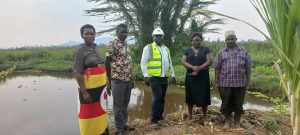
Kwezi urged farmers who cannot afford to raise the required co-funding money to borrow from financial institutions that the district is closely working with.
In a recent exclusive interview with Business Focus, Eng. Kwezi said the district has so far collected and registered 538 expressions of interest for micro-scale irrigation from farmers.
“Out of these (538), the successful ones are 403 applications,” Kwezi says, adding: “To-date, we have conducted 380 farm visits across the district. Out of 380, 366 are successful.”
He says the 366 farmers who were successfully visited and assessed will proceed to the next level of procurement as guided by the grant guidelines 2023.
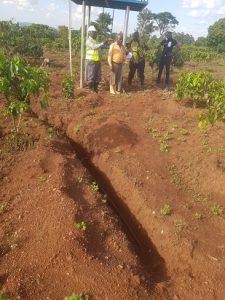
He reveals that the district constructed 5 irrigation demonstration sites so that other farmers can learn from them. These include Kajoba memorial farm in Kisiita Town Council, Kyaligonza Lazmus farm in Nalweyo sub-county, Birembo Seed Secondary farm in Birembo sub-county, Kiringo Farm in Bwamswa sub-county and Nabatanzi Prossy farm in Nkwirwa – Kasambya sub-county.
LCV Chairperson Hails Programme
Joseph Sentanyi Senkusu, the Kakumiro District LCV Chairperson, who is also a farmer, says population is rapidly increasing yet land remains fixed, thus calling for innovations to increase productivity.
“Irrigation can increase productivity. It can enable you to get so much from a smaller piece of land,”Sentanyi said, urging farmers to embrace high value crops.
He noted that domestic violence is high in Kakumiro district and attributed mainly to poverty and alcoholism.
“Once small scale farmers transform into commercial farmers, household incomes will increase and domestic violence will drastically reduce. We shall educate our children and shall live happy lives,” he said.
He added this programme also has potential to reduce land wrangles in the district because even farmers with two acres or less will be able to use it productively once it’s under irrigation.
Challenges & Wayforward
Asked about challenges they are facing in implementing the programme, Kwezi cited delayed release of funds, inadequate transport for field staff especially the Agriculture Officers and Community Development Officers and poor network in some areas which complicates the use of the Irritrack App.
“Some areas are water stressed, hence a barrier to farmers to benefit from the Programme,” he says.
On the wayforward, Kwezi says the Ministry of Agriculture, Animal Industry and Fisheries (MAAIF) and Ministry of Finance Planning and Economic Development (MoFPED) should harmonise and review timely release of funds.
He also calls upon line Ministries to procure means of transport for field staff. He also urges Government to construct valley tanks in water stressed areas.
About the Programme
The Micro-scale Irrigation Programme is in line with Uganda’s National Irrigation Policy which aims to create 1.5 million hectares of irrigated land by the year 2040.
It is part of the Intergovernmental Fiscal Transfer Reform Program (IFTRP) and supported by the World Bank through the Uganda Intergovernmental Fiscal Transfer Program (UgIFT).


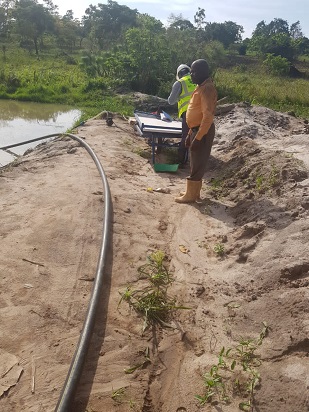

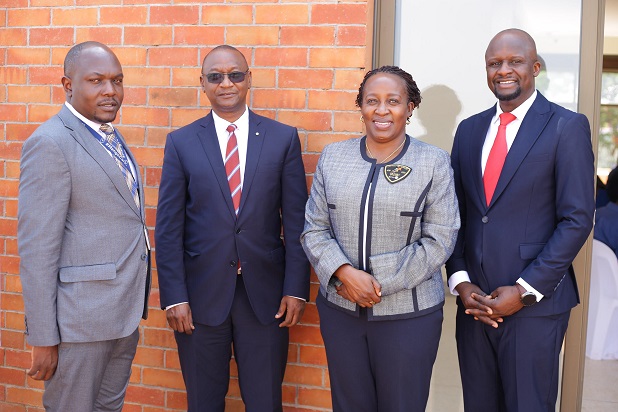

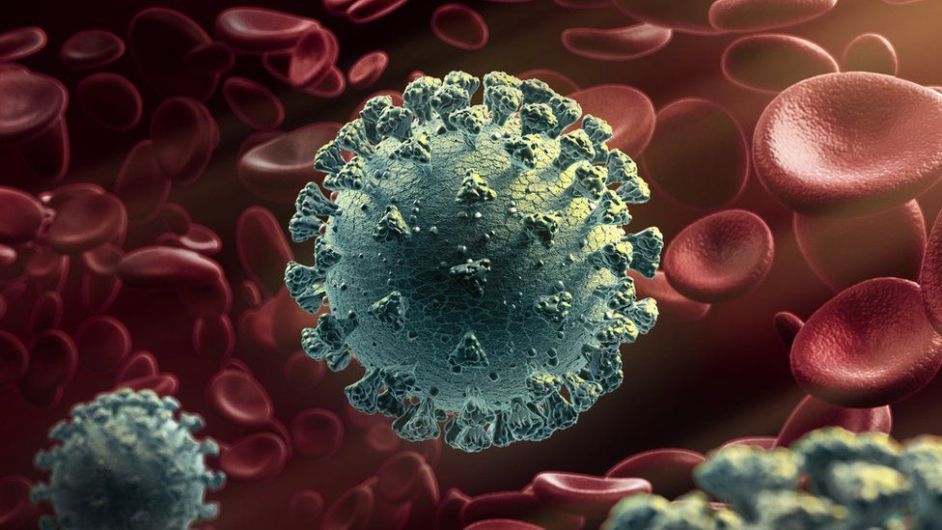
Very good program
We need to embrace it as farmers